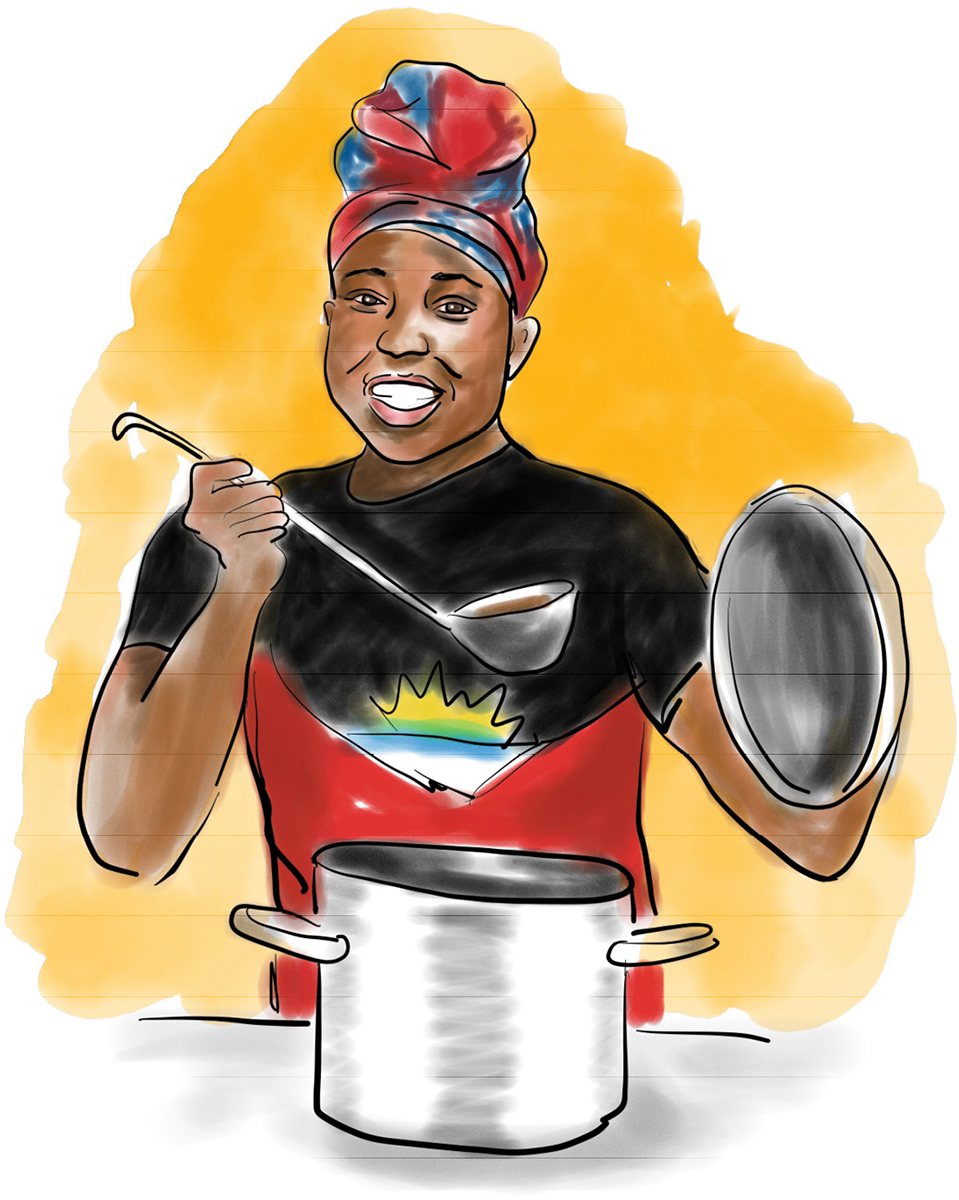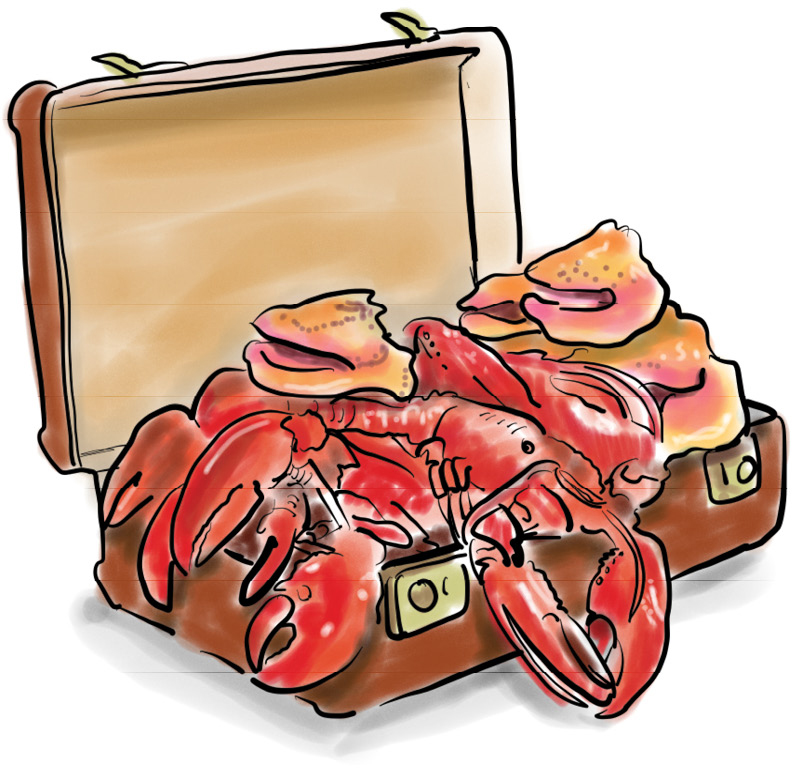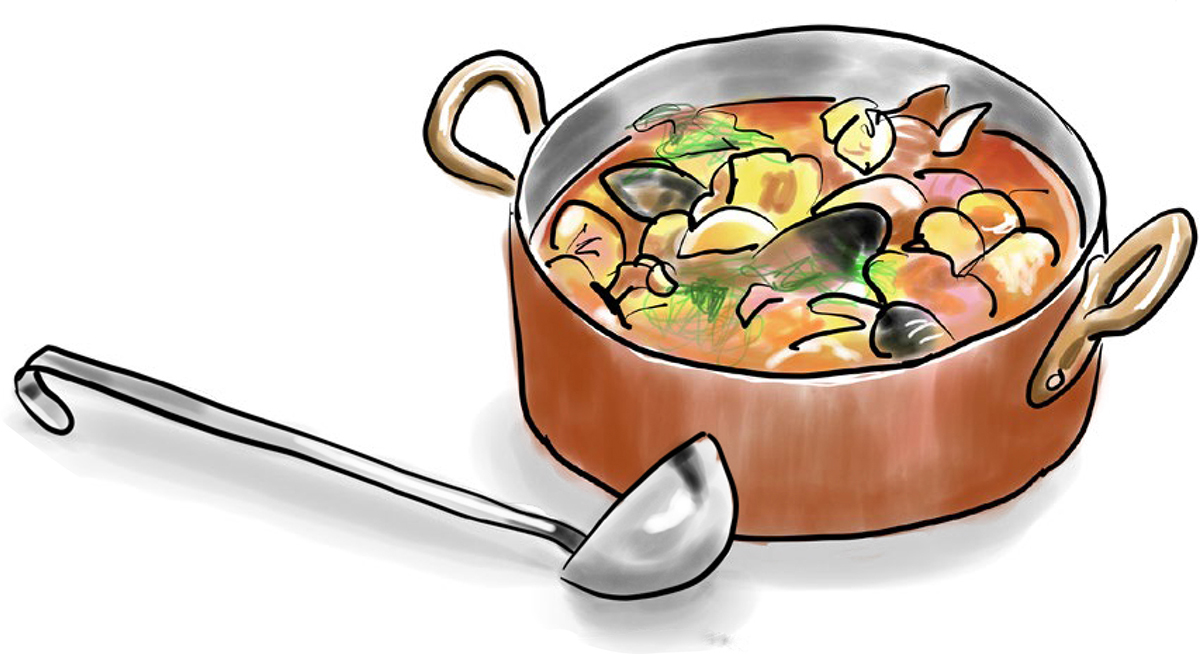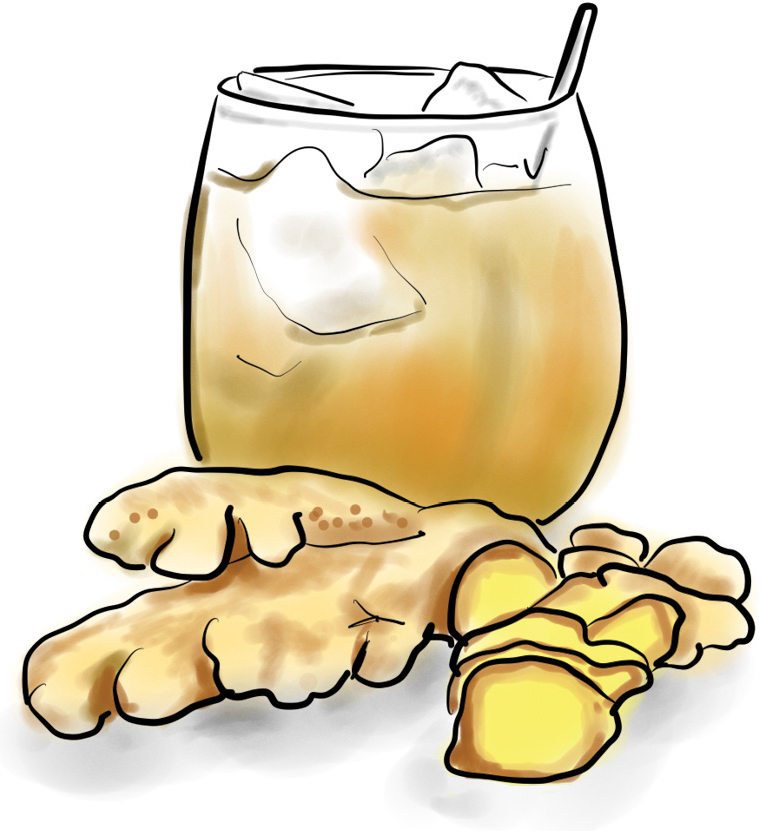
Laura Joseph
LA’MAOLI
7
ANTIGUA
Cricket is the most popular team sport in the 108-square-mile Caribbean island of Antigua, where Laura was born and raised with the sounds of the ocean in her ears, minutes from the nearest beach in the idyllic fishing village of Urlings, far from tourist activities.
When a big cricket game was coming up, her family’s home would suddenly transform into a flurry of activity in preparation for serving whole meals to fans at the stadium in St. John’s—the capital city of Antigua and Barbuda, a half hour’s drive away.
Unlike Americans at baseball games, Antiguans like to eat whole meals while they watch cricket. In preparation for the games the next morning, Laura and her family “would be up all night making food—and all day selling and vending.” Seafood soup was a perennial favorite on the menu.
“We ate it a lot. It’s more a hand food ’cause there’s shells and stuff involved, so it’s a fun food to eat, served with bread and a beer or something. We would eat it all the time. Even as kids.” Kids in Antigua learn how to eat crustaceans, mollusks, and whole fish at a young age. One piece of common wisdom they follow while still on the learning curve is Don’t talk while eating fish; you’ll choke or swallow a bone!

A street-food staple, seafood soup is also served at restaurants: “I think seafood soup is the correct name, but when you google it with all the ingredients in it, it comes up as bouillabaisse. And when you order it in the restaurants in Antigua, they also call it bouillabaisse—I think for restaurant purposes, for tourists. Only like local-local you’ll hear it called seafood soup.”
Since moving to the US for college—she now works primarily in the medical field—Laura, along with her family, has figured out how to keep the tastes of home on hand, even in NYC, where seafood costs more and just doesn’t compare quality-wise to what they can find back in Antigua.

“We go back and forth, and we bring back the seafood with us. You’re allowed fifty pounds. . . . But customs officers actually stop us, they ask, What are you carrying? Seafood! And it’s always pretty OK. It’s not livestock, like a cow, or a sheep, a goat; those are the things they look for. But fish, and conch, and lobsters: It’s fine, we’ve been doing this for years.” They parboil the seafood so it doesn’t spoil, then freeze it, pack it with cold packs in checked luggage, fly over, and stash it in their New York freezers, where it keeps for up to three months.
Laura started La’Maoli in 2019 with the help of her family to bring her favorite Antiguan foods to the Queens Night Market, where the team often has a lot of explaining to do to about her homeland. The Antiguan tourism office should pay her for all the pointers she gives out! But her favorite tips are inspirational messages to young women like her who are starting their own businesses: “No matter who you are or where you’re from, always follow your dreams. And when you do, please remember that just because you’re struggling, it doesn’t mean you’re failing: All success comes through sustained efforts.”
ANTIGUAN
SEAFOOD
SOUP
One-pot dishes are basically an art form in Antiguan cuisine, including such staples as seasoned rice, pepper pot, and fungi. Many of these recipes find their roots in the native Arawakan culture. This seafood soup is a one-pot dish that highlights the bounty of fresh and delicious seafood that blesses the small country of Antigua and Barbuda in the West Indies. The recipe can easily be tailored to your preferences, adding and subtracting ingredients to suit your tastes; sometimes whole fish (such as red snapper) and crab are added. According to Laura, “Some people cook some starch into it, like potatoes, just to give it some body. But I like it clean, just served with bread.” Or consider enjoying it with boiled yams, or boiled green bananas, and a cold beer.
Makes 6 servings
5 pounds (2.25 kg) conch, removed from the shell
5 pounds (2.25 kg) octopus
Salt
2 lemons, halved
1 or 2 small lobsters (or lobster shells without the head, cut into 3 pieces)
24 mussels with shells
12 clams with shells
½ cup (120 ml) olive oil
5 white onions, chopped
4 celery stalks, chopped
1 green bell pepper, finely chopped
1 red bell pepper, finely chopped
4 garlic cloves, peeled and minced
1 bunch chives, chopped
One 28-ounce (794 g) can whole peeled tomatoes, chopped
4 fish bouillon cubes
12 to 15 large shrimp, unshelled and deveined
1 bunch fresh thyme
2 cups (480 ml) white cooking wine
1 Scotch bonnet chile
¼ cup (65 g) cornstarch or flour, thoroughly dissolved in 1 cup (240 ml) water

1. Cut up the conch and octopus to a reasonable size for boiling. Boil the conch and octopus in two separate pots, each with a dash of salt and 2 lemon halves in enough water to completely submerge the seafood. Cook until tender, up to 1 hour.
2. Meanwhile, simmer the lobster in 10 cups (2.4 L) lightly salted water for 25 to 30 minutes, then wash and scrub all the shells of the mussels and clams to remove any seaweed or dirt and set aside. Remove the lobster and save the broth.
3. When the conch and octopus are done, remove from the pots, reserving 2 cups (480 ml) of the conch broth, and cut the conch and octopus into bite-size pieces when cool enough to handle.
4. Heat the oil in a large soup pot over low heat and add the onions, celery, bell peppers, garlic, chives, tomatoes, and bouillon cubes. Cook for about 15 minutes, or until softened and fully cooked.
5. Add the shrimp to the pan and cook for 3 minutes, or until just cooked through, and then remove to prevent overcooking. Add the clams and mussels to the pot, cover, and cook for 5 minutes. Add the thyme, reserved lobster broth and conch broth, conch, octopus, lobster, shrimp, wine, and Scotch bonnet. Simmer for 10 minutes, until the seafood is tender and easily pierced by a fork.
6. Add some of the cornstarch slurry and stir until thickened, adding more after a few minutes, if desired. Simmer for 5 minutes, remove the thyme and Scotch bonnet, and serve.
ANTIGUAN
GINGER BEER
Antiguans drink ginger beer at any time of day, and especially for Christmas and Sunday dinners. In addition to being tasty and refreshing, ginger beer is purported to have many health benefits, helpful with digestive ailments, nausea, and inflammation.
Serves 6 to 8
1 gallon (3.75 L) bottled or distilled water
1 pound (450 g) unpeeled fresh ginger
2 cups (400 g) white rice
3 cups (600 g) granulated sugar
¼ cup (60 ml) clear vanilla extract
1. Pour the water into a large pot with a lid and bring to a boil over high heat.
2. Wash and grate the ginger on the finest side of a grater, or blend into a purée.
3. Remove the pot from the heat and transfer the ginger and rice to the boiling-hot water. Stir and leave covered overnight or for several days, depending on your preferred spiciness. (The longer it soaks and ferments, the spicier it becomes.)
4. Pour the ginger mix through a funnel and a fine-mesh strainer or sieve into a 3-gallon (11 L) jug or container to remove the ginger and rice. Squeeze as much juice out of the ginger pieces as possible and then discard them.
5. Add the sugar and vanilla, adjusting to taste. (Antiguans like it hot and sweet!) Stir until the sugar is dissolved.
6. Chill or add ice and enjoy.
